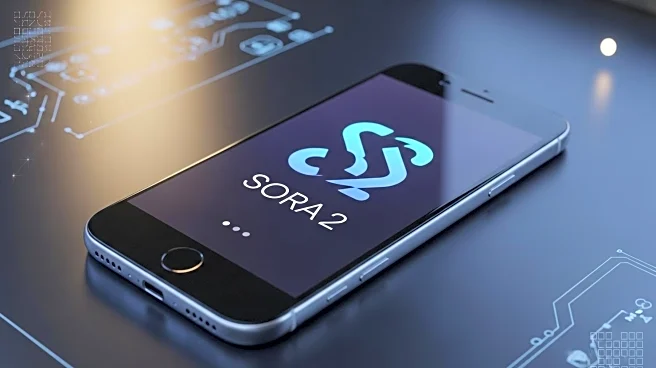What's Happening?
The App Store is currently experiencing a surge of applications mimicking OpenAI's Sora app, which is officially available only in the United States and Canada. These clones, such as 'Sora 2: AI Video Generator,' have been rapidly climbing the App Store charts, with one app reaching the 9th position in the 'Top Photo & Video Apps' category. Many of these apps are using OpenAI's branding and even Google's Veo 3 model in their descriptions to attract users. They often include in-app purchases and expensive weekly subscriptions, misleading users into believing they are downloading the official Sora app. This phenomenon is not new, as similar occurrences have been noted with other popular apps in the past.
Why It's Important?
The proliferation of these clone apps poses significant risks to consumers, who may unknowingly spend money on unofficial and potentially insecure applications. This situation highlights the challenges faced by app marketplaces in regulating and ensuring the authenticity of available apps. For OpenAI, this could lead to brand dilution and consumer mistrust, as users may associate negative experiences with the official product. Additionally, this trend underscores the need for improved app store policies and verification processes to protect consumers and maintain the integrity of digital marketplaces.
What's Next?
In response to the influx of clone apps, it is likely that the App Store will take measures to remove these unauthorized applications and prevent further instances. OpenAI may also need to enhance its communication strategies to inform users about the official availability of its Sora app. Consumers are advised to exercise caution and verify the authenticity of apps before downloading, especially when they involve financial transactions. The situation may prompt discussions among tech companies and regulators about strengthening app store policies to better safeguard users.








